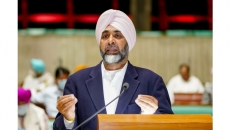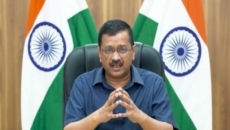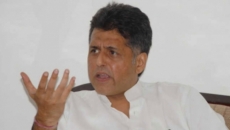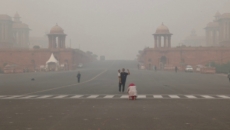After literally turning a deaf ear to the farmers’ issues for over a year, Indian Prime Minister Narendra Modi on Friday, November 19, 2021, in a dramatic move, announced the withdrawal of the three controversial farm laws, which were at the heart of the farmers’ protests across the country.
Thousands of farmers from Punjab, Haryana, Uttar Pradesh and Rajasthan have been protesting at different sites on the outskirts of Delhi since last November against the three agricultural reform laws that were passed in September 2020 without any consultation with them.
The three contentious laws, labelled as — ‘black laws’ by the farmers are: 1. The Farmers’ Produce Trade and Commerce (Promotion and Facilitation) Act, 2020; 2. Essential Commodities (Amendment) Act, 2020; and 3. Farmers (Empowerment and Protection) Agreement on Price Assurance and Farm Services Act, 2020. The farmers fear these laws will lead to the abolishment of the minimum support price (MSP) guaranteed by the government on select crops, and leave them at the mercy of big corporates, thus threatening their livelihood.
The farmers’ movement, which became one of the biggest protests in history, drew the attention of renowned activists and celebrities from India and beyond, including climate activist Greta Thunberg, Meena Harris and pop singer Rihanna. But our combative leader and his government paid no heed to the plight of the farmers.
The farmers marching towards Delhi faced water cannons, tear gas and lathi charges. They braved freezing cold, torrential rains, and sweltering heat for months amid the COVID-19 Pandemic. Their access to clean toilets and water was cut off. Innocent protesters were arrested and harassed by the cops. Barbed wire and iron nails were placed to contain them. Their patriotism was questioned as they were labelled as terrorists and Khalistanis. And over 700 peacefully protesting farmers were martyred during the protest, not to forget the recent horrific killing of farmers at Lakhimpur Kheri, Uttar Pradesh.
However, all through this, the ruling government and the Prime Minister, who in his Friday morning speech claimed, "In over five decades of my life, I have witnessed the struggle of farmers closely. That is why, after becoming prime minister, my government gave farmers’ issues primacy," chose to remain silent.
Now, after over a year, on the auspicious day of Guru Purab, when Sikhism founder Guru Nanak's birthday is celebrated, Prime Minister Narendra Modi announced the repeal of the three farm laws.
In his characteristic style, Modi said, "It is important for us that we have not been able to convince the benefits of these laws to all farmers. We have been trying and trying, using different mediums, and talks have been on. We have heard their arguments and understood them. We were even ready to change some provisions and suspended these laws for two years. The matter is also before the Supreme Court."
He added, "I apologise to the nation because there seems to have been something lacking in our efforts, because of which we were unavailable to explain the truth to some farmers. Today is Guru Nanak Jayanti and not the time to blame anyone. I would like to announce to everyone that we have decided to repeal these laws. I hope the protesting farmers will now return to their homes, return to their farms, and we can start afresh."
While the announcement brought a ray of hope for the farmers, its timing makes one raise the eye-brow. For the longest time, the Modi government and its ministers refused to even acknowledge the protesting farmers, proclaiming that there was no question of withdrawing the farm laws. Hence, the sudden U-turn in the government’s stance, just before the announcement of the crucial assembly elections in five states — Uttar Pradesh, Punjab, Uttarakhand, Himachal Pradesh, and Goa—is quite surprising.
So, what actually led to the rollback of these three black laws?
Experts and poll watchers believe this to be a strategic and political move propelled by the recent horrifying Lakhimpur Kheri incident, where the son of a federal minister allegedly drove his car into a group of protesting farmers in Lakhimpur, in Uttar Pradesh, killing eight people, including four farmers and a journalist. The tragic incident sparked nationwide outrage and further tarnished the Bharatiya Janata Party’s (BJP) image.
Another reason being debated for the sensational rollback is the upcoming state elections. Throughout last year, BJP had hurt the sentiments of the protesting farmers, and now the government fears it will lose a potential number of voters if they don’t act soon.
Without mincing words, Samajwadi Party (SP) national president Akhilesh Yadav reacted to the announcement and said, "Those who are apologising will not be forgiven. Farm laws withdrawal is a deception aimed at the elections. The entire government must resign." Yadav is not the only one hinting that the change of heart is impelled by the upcoming elections. Congress senior party leader P. Chidambaram also tweeted, "What cannot be achieved by democratic protests can be achieved by the fear of impending elections!"
In this context, American economist and social theorist, Thomas Sowell words seem to stand true even today — "No one will really understand politics until they understand that politicians are not trying to solve our problems. They are trying to solve their own problems—of which getting elected and re-elected are number one and number two. Whatever is number three is far behind."
However, whatever the reasons are, one can’t refute the power of this movement. It is an incredible victory for all the farmers who stood united for over 365 days. It is simply inspirational.
Resonating a similar thought, Maharashtra’s Chief Minister Uddhav Thackeray, while welcoming the announcement, said, "The nation has seen the power of the common man. The announcement (of the) repeal of the farm laws is an example of what the common man can do and what power they have."
Meanwhile, the visuals at all the protesting sites are absolutely delightful and heart-warming. Jubilant farmers from Punjab and Haryana are celebrating the news by proudly raising the tricolour, distributing sweets, dancing and chanting "hail the farmer" and "long live the farmers' movement." However, they know the battle is still not over and they shall hold the fort and continue with the agitation till the parliamentary procedures are completed.
Welcoming the Centre’s decision to repeal three farm laws, the members of Samyukt Kisan Morcha (SKM) said in an official statement.
"The Prime Minister of India Mr Narendra Modi announced the Government of India's decision to repeal all three anti-farmer, pro-corporate black laws first brought in as Ordinances in June 2020. He chose to announce this on Guru Nanak Jayanti. Samyukt Kisan Morcha welcomes this decision and will wait for the announcement to take effect through due parliamentary procedures. If this happens, it will be a historic victory of the one-year-long farmers' struggle in India. However, nearly 700 farmers have been martyred in this struggle. The central government's obstinacy is responsible for these avoidable deaths, including the murders at Lakhimpur Kheri. SKM also reminds the Prime Minister that the agitation of farmers is not just for the repeal of the three black laws, but also for a statutory guarantee of remunerative prices for all agricultural produce and all farmers. This important demand of farmers is still pending. So also, is the withdrawal of the Electricity Amendment Bill. SKM will take note of all developments, hold its meeting soon and announce further decisions."
Well, it seems like the government still has a lot of work to do so as to win back its voters.
More power to our farmers. "Long Live the Farmer’s Movement."






